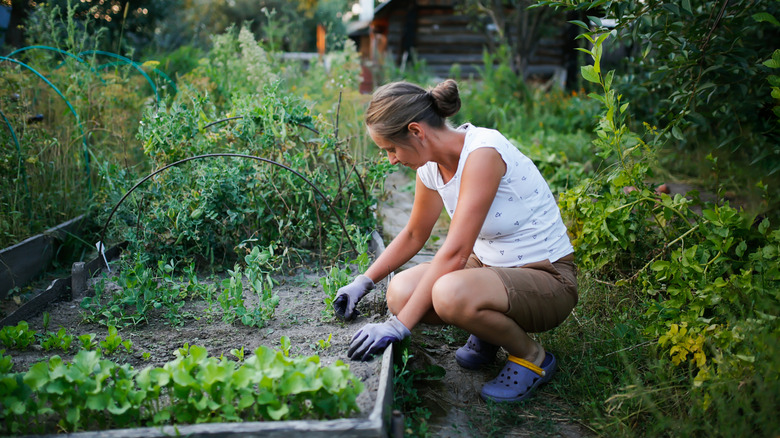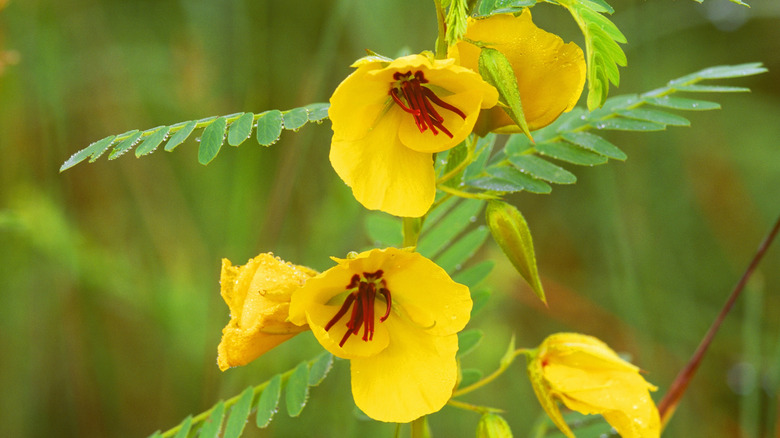Improve Your Garden Soil With A Fast-Growing Flowering Plant That Readily Self-Seeds
Maybe you've intentionally planted lush flowers to add curb appeal to your yard, but are you paying attention to its soil quality? Without proper care, your soil can easily become eroded or nutrient-deficient. Luckily, it's not difficult to replenish it. Consider adding a plant that will naturally improve soil quality, such as Partridge pea (Chamaecrista fasciculata).
This flowering legume is native to the United States, commonly found throughout the country, and grows well in Hardiness Zones 3 to 9. It's self-seeding and will attract pollinators, such as birds and bumble bees. Best of all, it features root nodules that are rich in nitrogen-fixing bacteria. This bacteria will disperse throughout the surrounding soil, making it more fertile, preventing further erosion, and, over time, supporting the growth of other plants. Though it's quite showy when in bloom, partridge pea grows quickly and isn't particularly fussy to care for. It's an annual, too, so you can try it out in your garden, enjoy its gorgeous yellow flowers (plus its soil-restoring properties), and then swap it out for something else next year if you're not sold.
How to plant and tend to partridge peas
Partridge pea is easy to grow as an annual and, once established, simple to care for. It's adaptable to a range of soil types and light conditions, though it needs full sun or partial shade to really thrive. Once it's matured, its stalks can reach up to 3 feet in height. This plant flowers between June and October for about three months at a time — in general, you'll want to plant it in the fall so it germinates the following spring.
Be sure to choose a spot where it will receive at least six hours of light each day. Since partridge pea isn't particular about soil quality, you don't have to worry about measuring the Ph of your soil, but you will want to make sure it drains decently well. Partridge pea sprouts easily and spreads readily even when planting from seed. Simply plant the seeds in a container, keep the soil moist, and replant it in your garden in the spring once it's sprouted. You can also purchase this plant from a nursery and add it to your garden bed. Keep the soil moist but not drenched. Also, keep an eye on its growth. Since it's self-seeding, partridge pea can become a weedy or aggressive grower.
Partridge pea isn't the only summer-blooming flower that can improve the health of your soil. Best known for their fragrant, flashy blooms, marigolds (Tagetes) double as a natural repellent for deer and other pests. Similar to partridge pea, red clover (Trifolium pratense) is a perennial flowering plant with root nodules that can fix nitrogen deficiencies in your soil. However, it can get weedy or invasive in some areas, so you may need to monitor it.

